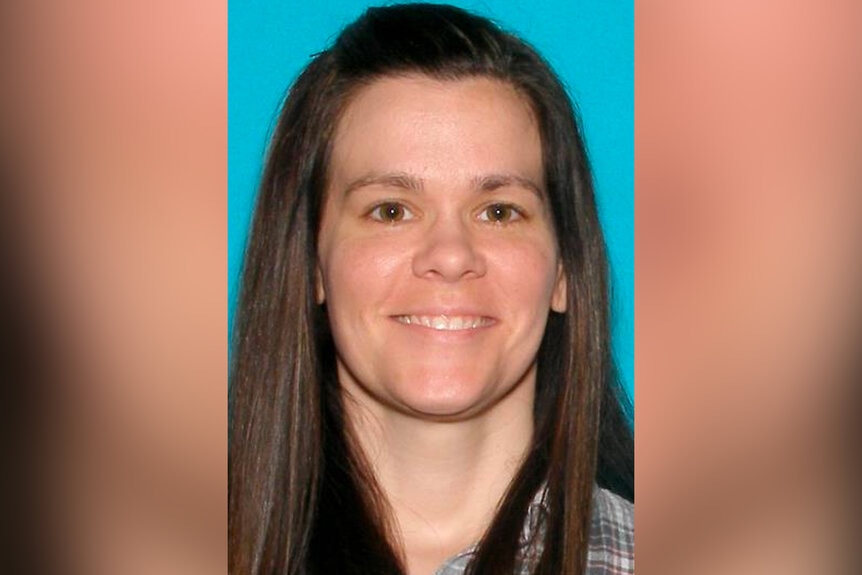Create a free profile to get unlimited access to exclusive videos, breaking news, sweepstakes, and more!
Former Missouri Respiratory Therapist Charged In Alleged Murder Of Second Patient With Pharmaceuticals
Suspected serial murderer and former respiratory therapist Jennifer Anne Hall was charged with fatally dosing bronchitis patient David Wesley Harper in 2002. She's being investigated in the "suspicious" deaths of nine of her patients.

A former Missouri respiratory therapist suspected of killing multiple patients and already formally accused of murdering one was handed a murder charge in a second case on Wednesday.
Prosecutors accuse Jennifer Anne Hall, 42, of fatally "administering unprescribed pharmaceuticals" to 37-year-old bronchitis sufferer David Wesley Harper while he was under her care in 2002 at the Hendrick Medical Center in Chillicothe, according to an arrest affidavit filed by the Livingston County Prosecutor and reviewed by Law&Crime.
RELATED: 'Tiger King' Star Joe Exotic Reportedly Refusing Treatment For Spreading Prostate Cancer
“Because of Hall’s singular proximity to stricken patients, her access to pharmaceuticals which are deadly if misused, and her discovery and method of notifying staff of every patient’s cardiac emergency, nursing staff believed Hall was responsible for the patient deaths,” Chillicothe Police Officer Brian Schmidt wrote in the affidavit.
Harper died unexpectedly three days after he was admitted to the hospital on March 18. Hall was tasked with monitoring Harper while doctors determined his tolerance to a Bi-PAP device in his sleep after he was unable to effectively use a C-PAP machine, according to court documents.
After doctors asked Harper to stay at the hospital — located about 80 miles from Kansas City — for an additional night to test out the new machine, prosecutors wrote that the medical records Hall kept contradicted the data collected by the Bi-PAP machine.
Investigators wrote that Hall "failed to record her presence with Mr. Harper" twice, which "had the effect of distancing Hall from Mr. Harper's murder in both time and location," creating an "alibi by omission."
In the last 25 minutes of Harper's life, Hall recorded the patient's vital signs and specifically recorded that he did not have sleep apnea or difficulty breathing twice.
Shortly before his death, Hall reportedly told other nurses that Harper fell backwards from a seated position on his bed from "complete respiratory arrest."
Nurses who attempted to resuscitate Harper told police that he showed signs of severe brain damage, namely "posturing with his hands turned inward on his chest," that indicated he had gone without oxygen for a "substantial period of time," court documents said.
As they attempted to revive Harper, Hall's coworkers discovered that she was carrying a vial of the skeletal muscle relaxant succinylcholine — which she was not certified to administer — in her pocket. Medical records show that drug was not used in attempts to resuscitate the patient.
"The substance used to take Mr. Harper's life, succinylcholine, paralyzes the victim's muscles, including the diaphragm, causing the victim to suffer a ghastly death from suffocation, while still maintaining full consciousness and awareness that they are unable to breath and are dying," prosecutors wrote in court documents.
During her short tenure at the Hendrick Medical Center between December 2001 and May 2002, 18 similar incidents took place at the hospital. Nine proved fatal, according to probable cause documents reviewed by NBC affiliate KSHB. Generally, the hospital averaged just one fatal incident within other six-month periods, the outlet reported.
Hall was placed on administrative leave after a near-identical death two months later, according to the outlet. An autopsy of Fern Franco, a 75-year-old pneumonia patient who died under Hall's care on May 18, 2002, also died of succinylcholine poisoning. That drug and morphine, both detrimental to pnuemonia patients, were found in the dead woman's tissues.
After Hall was placed on leave, the hospital told investigators that "code" incidents dropped down to their typical rate. Earlier in her nursing career, according to the affidavit, Hall was dismissed from a position at Cass County Medical Center after she allegedly falsified records.
Hall wasn't arrested for another 20 years, when she was charged with first-degree murder in Franco's death last May. She pleaded not guilty in the case, according to People. Her jury trial for that alleged murder is slated to begin in Clinton County on May 15, per local outlet KTTN.
Facing pubic scrutiny for the atypical number of deaths under her watch at the facility, Hall vehemently denied that she killed her patients in an interview with local outlet KMBC.
"It's shocking to know that somebody can think something so horrible of you and the real truth is out there somewhere," Hall told the news station.
Molly Hastings, Hall's attorney, told People that Hall also intends enter a not-guilty plea for Harper's death in court.
"I look forward to the opportunity to defend her against each and every one of these allegations and believe the evidence will support an acquittal when we have our day in court," Hastings told the publication.



























